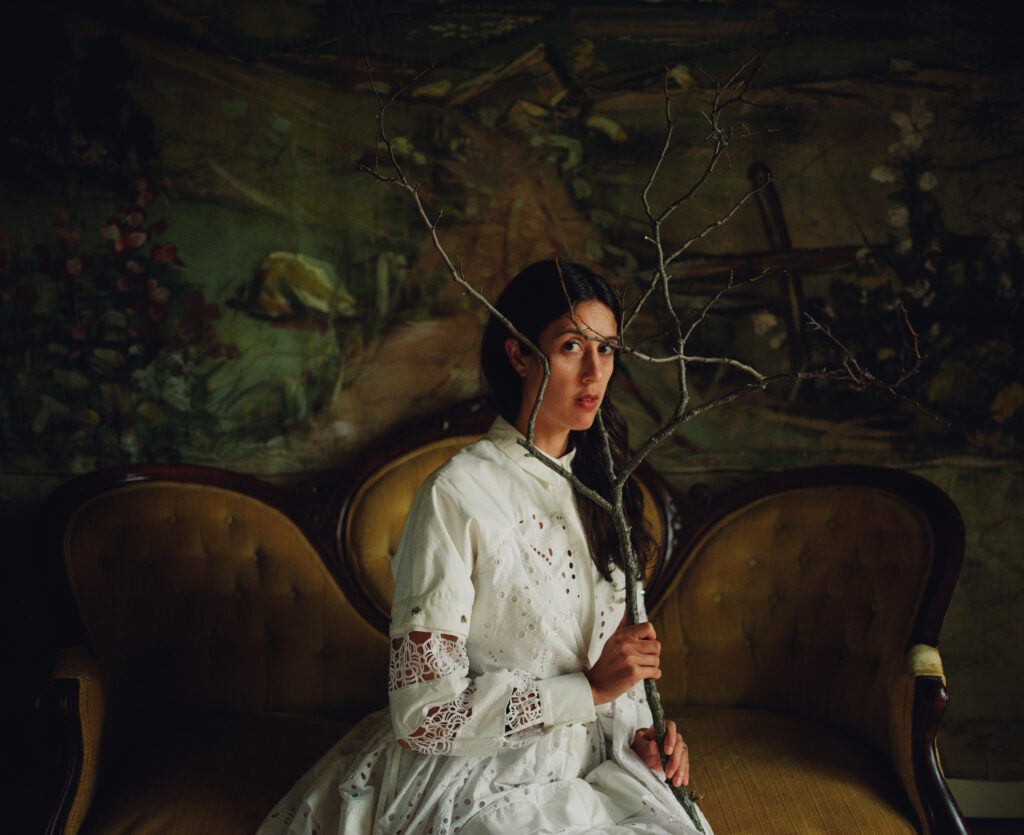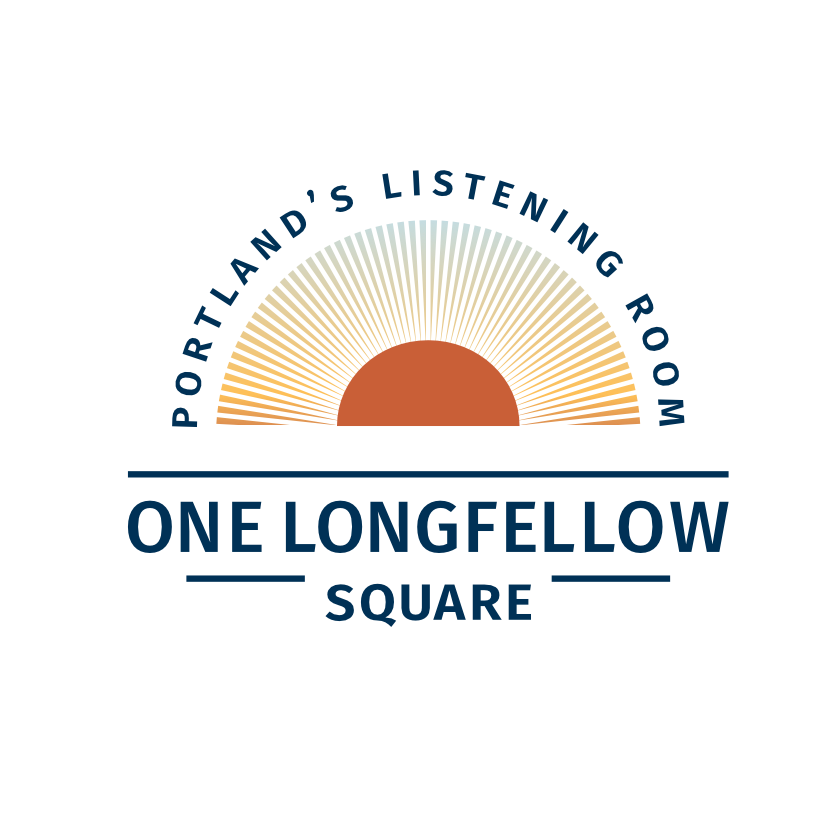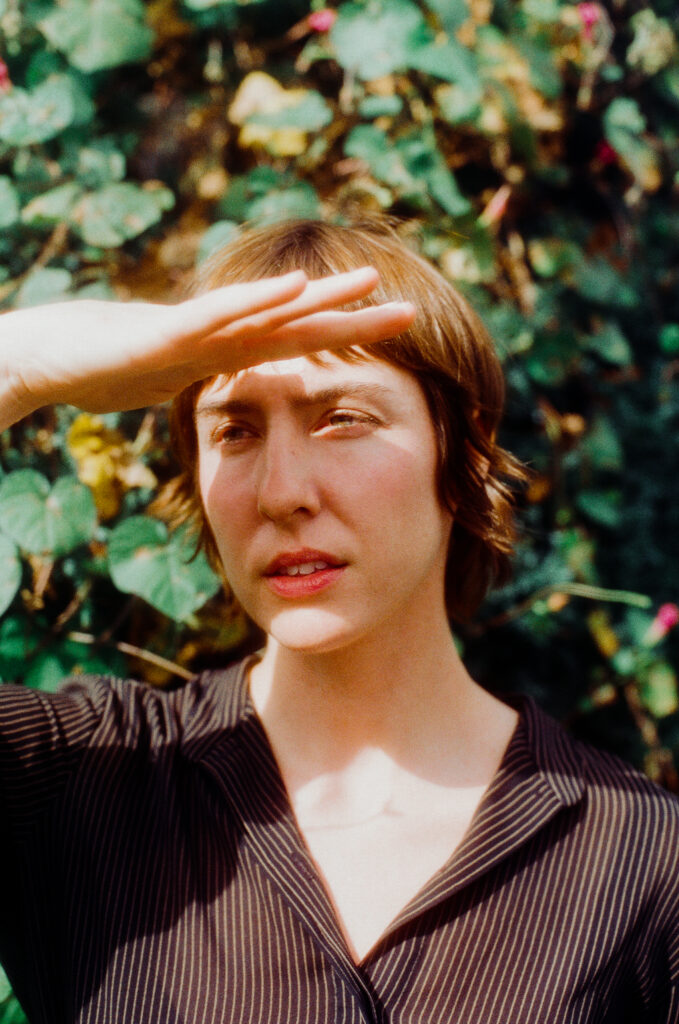
Half Waif with special guest Kristine Leschper
January 30 @ 8:00 PM

7 pm doors – 8 pm show

- ADVANCE PURCHASE: $20
- AT THE DOOR: $25
- All tickets will incur an additional $4.50 surcharge.
- MEMBERS: Please click here to ensure you are logged in so your discount is reflected above and applied at checkout.
- All surcharges and member discounts will be calculated at checkout.
- Click Here to learn how our ticket surcharge supports OLS.
In the deep Upstate New York winter of 2022, trees bare and taunting, Nandi Rose found herself searching for an apricitic clarity. She has always found the season difficult; its ruthless theft of birdsong and flora, heavy clouds low and smothering what little light remains. But the cacophonous silence of that winter was particularly brutal. It should have been stirred by the growth of life, a promise of a new chapter, a bright dawn, as Rose learned she was pregnant with her first child. That promise was broken in early December, when stillness took over the ultrasound screen; slow-motion mouths told her the life inside her had ended. Like a snapped branch weighed down by leaden frost, Rose lost a part of her future she thought would blossom.
Baldwin tells us we must say yes to life, to “embrace it wherever it is found – and it is found in terrible places – nevertheless, there it is.” This is the guiding force of See You At The Maypole, the sixth full-length album in Half Waif’s prolific catalog.If we look for color in the midst of our own personal winters, the brightness will soon begin to bounce off the snow. This gathering of resilience and clutching of chiaroscuro––celebrating both light and dark––guides us on a journey towards acceptance and surrender. Rose had to figure out how to love her life, even if it didn’t look like what she wanted it to.
See You At The Maypole was originally intended as a departure from the darker works of Half Waif. Whereas 2021’s Mythopoetics dealt with familial traumas and the patterns we carry with us, Rose––armed with the anticipation of planning her own family––envisioned a new collection of soft and joyous odes to motherhood, and to new beginnings. That writing sparked in the summer of 2021 at a solo retreat in the Catskills, as melodies formed in a small cabin overlooking a luscious and rain-rippled pond. A month later, Rose found out she was pregnant and anticipated nine months of writing through a new, maternal lens, speckled with the verdure of certainty. But when that soundless morning arrived in December, See You At The Maypole took on a new life. One that would seize the uncomfortable reigns of uncertainty.
The treatment of a missed miscarriage, as with an at-home abortion, is most effective with the use of two pills: mifepristone and misoprostol. Rose, however, was only prescribed the latter, likely due to FDA regulations on the former. Over the course of the next four months, her body did not recover as it should have. It wasn’t until the spring that she learned she had retained pregnancy tissue and needed an additional procedure, finally allowing her to move forward. “I was literally carrying death inside me,” she explains, “and then my body was frozen.” In that same time, Rose’s beloved mother-in-law was diagnosed with aggressive pancreatic cancer; it felt like the universe was playing an endless, cruel joke. And so, Rose wrote to save herself. Before the sunrise, she wrote in the quiet corner of the would-be nursery while her husband slept across the hall. These were lullabies for no one, whispers dissipating into the fog.
While the seclusion of grief feels infinite, Rose brought the songs to her trusted friend and longtime collaborator of the past decade, Zubin Hensler. The pair worked away from others for Mythopoetics, carefully crafting each note and flourish themselves but something else was needed for See You At The Maypole. Rose was learning to loosen her grip on perfection, to splatter the canvas or leave the dropped stitch, and know that it will be beautiful anyway. “How can I take the heaviest material of my life and make it feel like air?” she asked. Live takes, whispered early-morning vocals and distorted phone recordings were all kept. It became a children’s coloring book, broken crayons smudged across the lines.
In The Wild Edge of Sorrow: The Sacred Work of Grief by Francis Weller, the author highlights the importance of ritual spaces, and how many communities tend to gather in these spaces when someone has lost a loved one. Though the stem of many of these songs were written in isolation, Rose’s lullabies would soon bloom into a collective calling for anyone experiencing their own personal winter. See You At The Maypole is a room for wailing, not just for catharsis but for connection. Like lung-bursting sing-a-longs alone in the car, notes leaving the open window to be caught by another.
“This wasn’t just my story, I wanted to say. It was every story of loss—the loss of a life, the loss of a dream, the loss of trust and hope and faith. A story of finding a way back again,” Rose explains. “My own avenue back to the land of the living was through my relationships with people and with the natural world. It only seemed right that these songs would invite those people in to build the very heart of the sound.” To that end, Hensler and Rose welcomed a wealth of players and friends into the world of the record: Jason Burger and Zack Levine on drums and percussion; Josh Marre (Blue Ranger) on guitar; Hannah Epperson and Elena Moon Park on violin; Kristina Teuschler on clarinet; Willem de Koch on trombone; Rebecca El-Saleh on harp; and Spencer Zahn on upright bass. Andrew Sarlo (Big Thief, Bon Iver) lent his deft mixing skills to many of the tracks, including lead single ‘Figurine.’
New York City-based choir Khorikos adorns several songs, most notably on opener ‘Fog Winter Balsam Jade’ urging a mantra of collective howling. Naming those stomach-prodding reminders of grief but still recognizing their beauty: cutting an apple in the kitchen; watching a bird take flight from the back yard; a morning glory climbing up the corner of the house (‘Collect Color’); a sunset in the rearview mirror (‘I-90’); fog, winter, balsam and jade. The natural world has often been a cradle to Rose––a gentle sway of serenity––but it’s on See You At The Maypole that she had to look to its tougher lessons, and embark on a metamorphosis of her own. “Let me be oak,” she utters on ‘Heartwood’. “I embrace in all directions.”
Hensler and Rose recorded some––but not all––at Hensler’s Brooklyn studio, departing the comfort of those reassuring walls and stepping into the constellations of Chatham, NY, Kingston, NY, the St. Anthony of Padua Church in Manhattan, and notably, Imogen Heap’s The Hideaway studio in England. Hidden in the heart of a green conservation area, The Hideaway provided a foundation for moments on ‘Fog Winter Balsam Jade’; the urgent, percussive swells of ‘Ephemeral Being’; the glittering statement of ‘Heartwood’ and ‘The Museum’ –– a languid, uneasy look at bringing life into a crumbling world. There is no shadow without light, and as the strings soar, Rose desperately grasps at the responsibility of motherhood. Sustained, ghostly vocals fill the outro, wrestling with the blessing and insecurity of new parenthood.
Dynamic arrangements adorn See You At The Maypole, but there are also moments of simplicity. ‘Figurine,’ a tender ballad written in January 2022, mimics the immobility of pain, but the perseverance of trying to move past it. Rose’s quiet lament of “I love you when it’s snowing, I love you when it’s warm” opens the song, pointing to the seasons of grief, as well as the glimmer of change and growth. “Not everyone will go through a miscarriage but this is a song about how to continue on when you’re in a deep, deep sense of loss,” Rose says. “Head up, it’s gonna get so much better you’ll see,” it urges, a chin-up, jewelry box figurine, continuing its dance despite it all.
See You At The Maypole is a recognition of personal sadness, and a call to ecstatic togetherness. It’s gathering the colors of our spirit, in all its shades, and making something intricate and remarkable. The ceremonial folk dance performed around a maypole is filled with fauna and flora, with ribbons woven into complex braids incapable of unraveling; these dances are survivals of ancient ritual, honoring the living trees, and the return of Spring and fertility. These patterns––this dance––cannot be completed alone, and so, Half Waif welcomes others to join her, a collective of bleeding color. “We are so much stronger for the colorful experiences we go through,” she says. “That’s where we find our humanity and find each other.”
Out of chaos, the universe emerged, and from chaos a person can emerge, too. Kristine Leschper
isn’t being hyperbolic when she describes a sensation of “being born” when a culmination of
events, both personal and global, catalyzed in her “an understanding of how to relinquish control
in a big way, and from that, a new sense of connectedness, transition, and impermanence.” She
explains her desire to cultivate work in the spirit of the New World Poets, where in the words of
June Jordan there exists “a reverence for the material world that begins with a reverence for
human life, an intellectual trust in sensuality as a means of knowledge and of unity.”
Leschper’s The Opening, Or Closing Of A Door, due March 4 via ANTI/Epitaph, is a paean to
the sensory world. It’s the first Leschper has released under her given name, having retired the
moniker Mothers after eight years of performing and releasing music under it. Though both
projects are guided by Leschper’s idiosyncratic approach to songwriting, they couldn’t sound
more different. While Mothers drew inspiration from the stark, skeletal sounds of post-punk and
contemporary folk, Leschper’s new work is practically baroque, integrating an array of
synthesizers, strings, woodwinds, and over a dozen percussive instruments. “Earlier work didn’t
involve recording as part of the writing process, recordings were simply made as a document of
something that had been written and rehearsed. I have since discovered a deep affection for home
recording and sound exploration, finding that I thrive in those rabbit holes of texture, timbre,
rhythm, which can add so much complexity to the emotionality of a composition.”
The at-home recording process gave Leschper freedom to set her personal ethos to music
divorced from the pressure of an audience. As she worked on The Opening, Or Closing Of A
Door, the constellation of ideas that had guided her personal transformation began to cohere into
something communicable through music. “My pleasure lives in the poetics of democracy — in
the liberatory words of June Jordan, in the humanitarian performances of Bread and Puppet
Theatre. Puppetry, like poetry, is a distillation of complex ideas into absolute essentials. With
these songs, I wanted to explore themes of longing, encouragement, connectedness, these things
that are both straightforward and complex, ubiquitous and vital. It is the foundation of our
personal lives that extends broadly into our political lives. I wondered, what might a love song to
my friends look like? What might a love song to myself look like?”
“Figure and I” offers a response to that very question. “There are two distinct characters in the
song, representing the severance between self, or soul, and body,” Leschper explains. “It is about
learning how to love the body and the spirit, how to combine the two.” Inspired by the samba
artist Nelson Cavaquinho, Leschper programmed a drumbeat and quickly tracked a hand
clapping pattern to accompany it, a rhythmic feature that recurs throughout the album. “The
accessibility of hand clapping as an instrument was really exciting for me, and I’ve long been
interested in the symbolism of hands representing work, or community, or offering, or holding
and being held. Using this fundamental sound-making device makes me feel rooted in a deeper
sense of time because of the historical longevity of hand clapping in folk traditions around the
world.”
Hand clapping also characterizes the lush sonic landscape of “Picture Window,” where Leschper
aimed to create a sensory space vast enough to encompass the fleeting whimsy of childhood. It
felt appropriate to include a flamenco palmas pattern, as the sound of palms slapping together
reminded Leschper of the hand clapping games children play. “I grew up in a small town in
Georgia, so summertime meant crickets and cicadas, the way they phase in and out of each other,
and the swirling movement of pollen on the water,” she says. “I built this song in layers,
beholding always the backdrop of the south, the warble of head rising off the scalding
pavement.”
Every song on The Opening, or the Closing of a Door is best described as a love song. Leschper
calls the cavernous, organ-led “Ribbon” as a “song of encouragement,” one that offers a path
away from isolation. “If you give me the sign/ I’ll take my knife to the ties of/ Your ribbons
holding something/ Like a light inside,” Leschper coos, steadfast as a mourning dove over an
arrangement that chirps and trills with the pointed inclusion of flute. Those arrangements were
made in collaboration with Sammy Weissberg, whose unique orchestration meshed seamlessly
with Leschper’s vision for the project. “Sammy was approaching the music quite visually, even
theatrically. He expressed this desire to visualize the chamber arrangement sections as a
‘character’ who steps into and out of frame, bringing their own sonic landscape with them”.
Longtime collaborator Matthew Anderegg wrote “All That You Never Wanted,” the only track
on the album not penned by Leschper. The perky, sing-song delivery of a single phrase repeated
over and over again recalls a commercial jingle. “For me, the song feels like a rumination on
consumerism, and ultimately a rejection of it. The form reinforces the content, with the repetition
of the main phrase reading almost as an advertisement.”
If we are to consider The Opening, Or Closing Of A Door as an encapsulation of Leschper’s
metamorphosis, no song addresses it more vividly than “Compass,” an ode to those who have
helped her sustain a life. As cymbals crash into the outro, Leschper’s singular voice is joined by
a group of accompanists, among them members of her immediate family and a few close friends,
whose amateurish singing offers the kind of warmth and comfort only found in the people we
love most. Here, Leschper returns to that hearth, basks in it, and gives thanks.
“Lately my work centers on exploring joy in its wildness and complexity, the complicated ways
that this joy intersects with an imperfect world,” Leschper says. “Circularity has become a major
part of my belief system, the lens through which I watch the world — observing cycles helps me
make sense of my universe, both internally and externally. Popular culture loves to tell us stories
about the importance of ‘growth’, personal growth, economic growth, what have you. It’s very
linear. In work, as in life, I am making a conscious effort to center myself around something
antithetical to that, because linear growth just doesn’t exist in nature. If you zoom out far enough,
everything is cyclical, everything is in a stage of transition! It becomes impossible to ignore the
vast network of systems we inhabit, that we are in relationship with each other at all times.”
IMPORTANT COVID-19 INFORMATION Effective immediately, we will no longer require proof of vaccination or masks at our shows. PLEASE NOTE: additional COVID-19 protocols beyond the venue policy MAY be required by a specific artist or band. PLEASE REFER TO THE SPECIFIC EVENT PAGE for the event you are attending for the most up to date information. TICKETING TERMS & CONDITIONS
One Longfellow Square does not assume liability; the ticket holder will assume all risks involved. By purchasing a ticket to this event you agree to assume full liability for any risks incurred before, during, and after the event and agree to the current Terms of Use.


